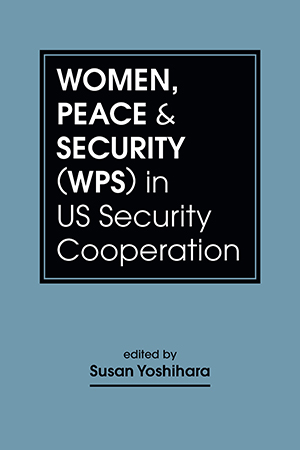The authors of this groundbreaking book explore the origins, rationale, and evolution of Women, Peace, and Security (WPS) efforts in the context of US security cooperation. Focusing on real-world policy and practice, they draw on cases ranging from post–World War II Japan to contemporary Ghana to demonstrate how including women in security cooperation efforts, while not without challenges, has improved operational effectiveness across the US military, built better security relationships, and advanced civil-military relations and human rights.
Susan Yoshihara is president of the American Council on Women, Peace, and Security and also on the faculty of the Institute of World Politics.
"This important, thought-provoking work powerfully captures the successful US strategic policy initiative that established closer and enduring partnerships around the world through emphasizing the safety and security of women and girls in fragile, unstable, and violent societies…. It also raises practical, affordable, and effective policy ideas for decision makers." —US Ambassador Donald Yamamoto
"Important reading for serious national security experts. For too long, we have viewed security only through the lens of lethality and battles to be won, [but] what's also important is the preservation of the peace, the reduction of violence against women and children, and the ability to restore long-term stability once the fighting is over. This book provides the theory, the history, and lessons learned for WPS. The theory is that when women are included in security affairs—both in planning and operations—we are more likely to be successful at preserving peace and restoring stability. The implications of that for women in the military and in national security leadership are profound." —Lori Reynolds, Lt. Gen. (Ret.), US Marine Corp








